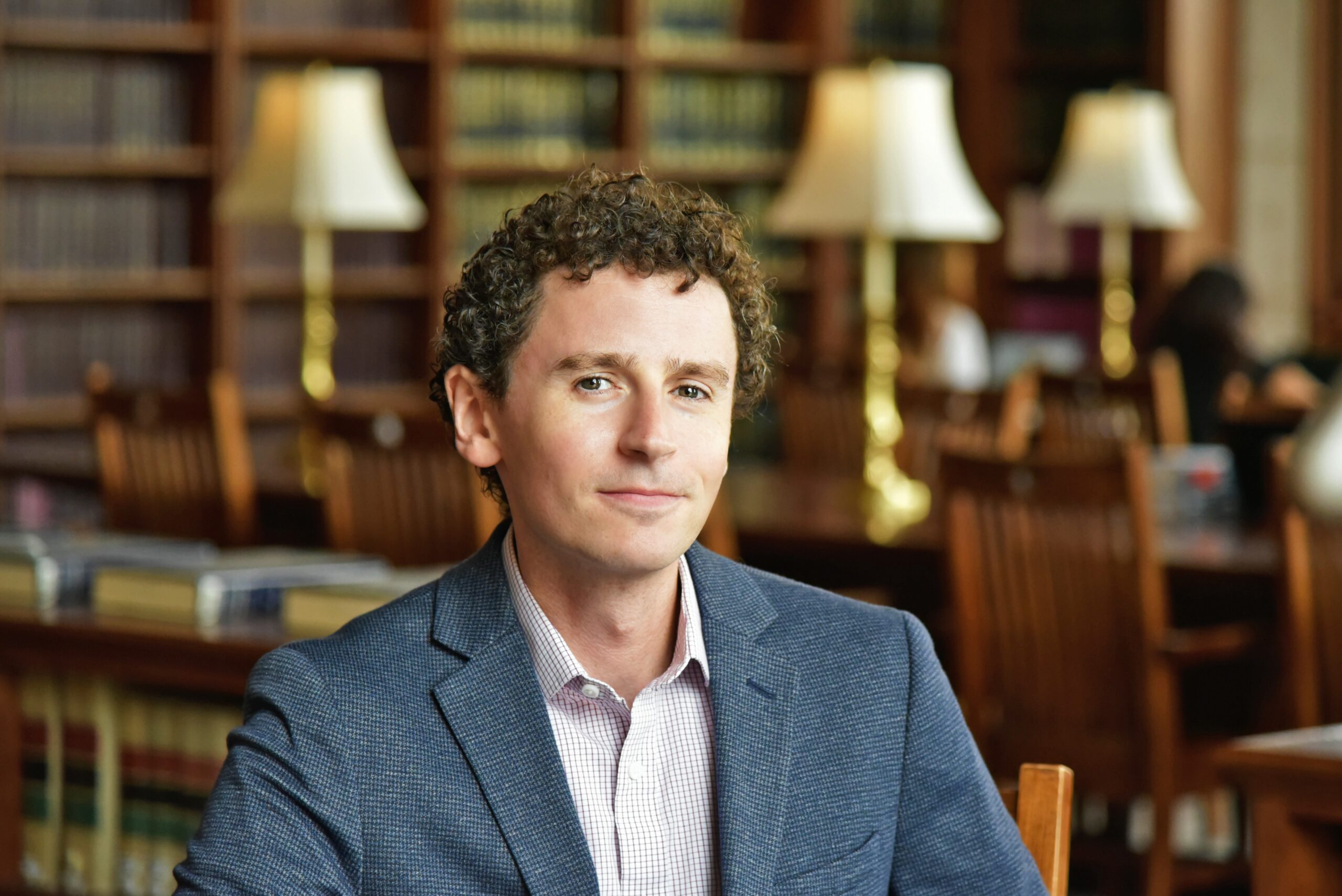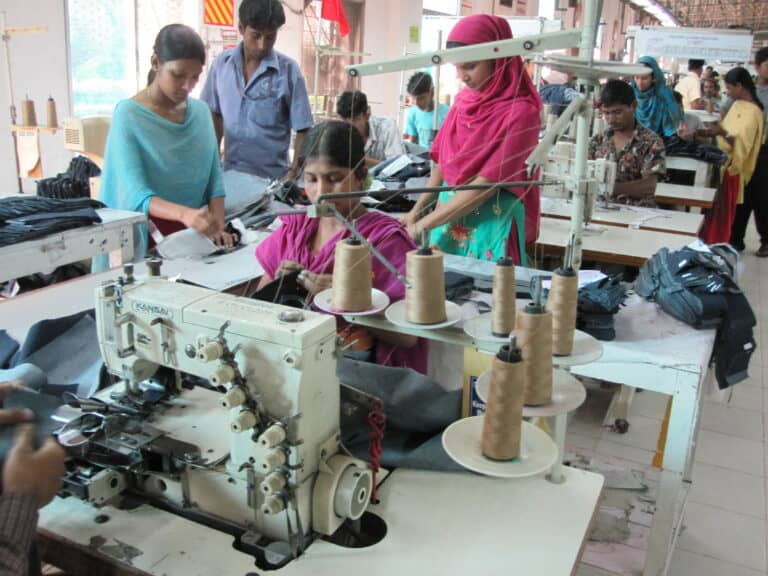
Benjamin Levin is a Professor at WashU Law.
Thanks to Ben Sachs for allowing me space for a reply and to Terri Gerstein and David Seligman for taking the time to respond to my post.
While I appreciate Gerstein and Seligman’s perspective, and I agree with them about the need to stop wage theft and protect workers, I have to part ways with them when it comes to their defense of criminalization and their positive characterizations of prosecutorial discretion.
On a blog devoted to issues of labor and workers, I hate to veer too far afield into criminal law and its application. But such a discussion is in order to clarify my disagreement with Gerstein and Seligman. Despite couching their pro-criminalization argument as exceptional to wage theft, I think the logic of their arguments cuts much more broadly and normalizes a number of practices that are of great concern to criminal law practitioners, scholars, and reformers.
First, I remain unconvinced that the way to make workers whole is to cage (or threaten to cage) an employer. The argument that incarceration advances the interests of victims is increasingly contested by criminal law scholars, activists, and practitioners. Even if one were to buy the logic of deterrence, it’s still not at all clear to me why the state must resort to the threat of caging people in order to obtain that deterrence.
Considering that reformers are trying to figure out ways to use restorative justice and non-carceral solutions to address violent crime, it’s hard to believe that we can’t come up with a better way to address this economic wrong than by locking up more people. And, as a corollary, arguing that incarceration is necessary for economic crime seems like it only will make the climb tougher for those of us fighting to reduce the use of incarceration as a response to other crimes.
That said, while Gerstein and Seligman argue that criminalization is necessary, they suggest that fears about incarceration are unfounded because jail sentences are rarely imposed.
It’s not clear how far this logic would extend – if it’s ok to use the potential sentence as leverage or as a way of sending a message, what about longer statutory sentences? Indeed, my initial post concerned an Australian proposal that would authorize ten-year sentences. Gerstein and Seligman never mention that proposal, so it’s unclear whether they would be on board with the Australian approach. (Further, it’s worth noting that one common explanation for the dramatic rise in U.S. statutory prison sentences is legislators’ assumption that prosecutors won’t seek the maximum penalty. That evolution in sentencing legislation has helped drive the (much maligned) use of plea bargaining by prosecutors.)
Put simply, Gerstein and Seligman’s argument is about prosecutorial discretion: we shouldn’t worry about the full force of criminal law, they suggest, because discretionary actors in the criminal system will make good choices. Prosecutors, according to Gerstein and Seligman, “exercise discretion and have limited resources; they are not likely to impose criminal sanctions on a whim or for minor, technical violations of wage-and-hour laws.”
The assurance that prosecutors can be trusted to exercise unfettered discretion or that they have no incentive to pursue technical violations runs headlong into decades of research on the dramatic costs of prosecutorial power. Prosecutorial misconduct cases are frequent, and activists increasingly seek ways to check prosecutorial power. And, it is worth noting that a major component of the national criminal justice reform conversation currently centers on continued detention of individuals for technical violations (particularly the failure to pay fines or court fees). Further, the claim that prosecutors are situated to – and do – regularly serve as the voice of marginalized people similarly rings hollow.
Am I arguing that the dynamics of a wage-theft prosecution are the same as dynamics in an assault or possession case? As I said in the initial post, no. And, I don’t deny that wage theft prosecutions may have helped curb abuse in some cases. But, I think it’s a mistake to argue that somehow this one class of cases can be cabined so neatly.
Wage theft is hardly unique as an area in which more powerful actors prey on less powerful actors or where victims come from marginalized communities. But, there are real and important reasons to avoid making the justifications prosecutors and tough-on-crime politicians have relied on for years. As prosecutor-turned-law-professor Paul Butler puts it in Let’s Get Free: A Hip-Hop Theory of Justice, “I became a prosecutor because I hate bullies.” (Notably, though, Butler goes on to note that he “stopped being a prosecutor because he hate[s] bullies.”)
Similarly, the claim that criminal prosecution is the appropriate way to empower communities is a highly contested one that has served as the backbone for much of the harsh criminal policy of the latter half century. If turning to state violence is the answer here, then why shouldn’t it be for any crime that involves poor defendants of color?
There seems to be a mistaken assumption here: that the other criminal laws being enforced are victimless. As a practical matter, the majority of prison and jail populations consist of individuals who have committed violent crime. So, advocating for incarceration, expansive prosecutorial power, and reliance on criminal law when confronted with “bad actors” harming vulnerable victims means rejecting an expansive vision of criminal justice reform. Certainly, this line of argument might allow for some reforms (e.g., marijuana legalization) but it stands in opposition to the sorts of reform that might dramatically reduce carceral populations and might take seriously the need to rethink how we address violent crime.
It has become common to decry the evils of mass incarceration in the abstract while supporting criminal law, expansive prosecutorial power, etc. when one is confronted with an intractable social problem, a particularly bad actor, or a cause about which one feels particularly passionate. That impulse is understandable and one with which I sympathize. But it’s also an impulse that helped build the carceral state (see James Forman, Jr.’s Pulitzer-Prize winning book Locking Up Our Own: Crime and Punishment in Black America on this point). And, it’s an impulse that continues to stand in the way of sweeping and radical reform.
Ultimately, I think that I’ll have to agree to disagree with Gerstein and Seligman on the desirability of criminalizing wage theft. But, I hope that any decision to support expanding wage theft criminalization (the topic of my original post) can be accompanied by a deeper reckoning with its costs and with an eye to reforming and resisting the structural defects that plague criminal prosecutions.










Daily News & Commentary
Start your day with our roundup of the latest labor developments. See all
July 1
In today’s news and commentary, the Department of Labor proposes to roll back minimum wage and overtime protections for home care workers, a federal judge dismissed a lawsuit by public defenders over a union’s Gaza statements, and Philadelphia’s largest municipal union is on strike for first time in nearly 40 years. On Monday, the U.S. […]
June 30
Antidiscrimination scholars question McDonnell Douglas, George Washington University Hospital bargained in bad faith, and NY regulators defend LPA dispensary law.
June 29
In today’s news and commentary, Trump v. CASA restricts nationwide injunctions, a preliminary injunction continues to stop DOL from shutting down Job Corps, and the minimum wage is set to rise in multiple cities and states. On Friday, the Supreme Court held in Trump v. CASA that universal injunctions “likely exceed the equitable authority that […]
June 27
Labor's role in Zohran Mamdani's victory; DHS funding amendment aims to expand guest worker programs; COSELL submission deadline rapidly approaching
June 26
A district judge issues a preliminary injunction blocking agencies from implementing Trump’s executive order eliminating collective bargaining for federal workers; workers organize for the reinstatement of two doctors who were put on administrative leave after union activity; and Lamont vetoes unemployment benefits for striking workers.
June 25
Some circuits show less deference to NLRB; 3d Cir. affirms return to broader concerted activity definition; changes to federal workforce excluded from One Big Beautiful Bill.